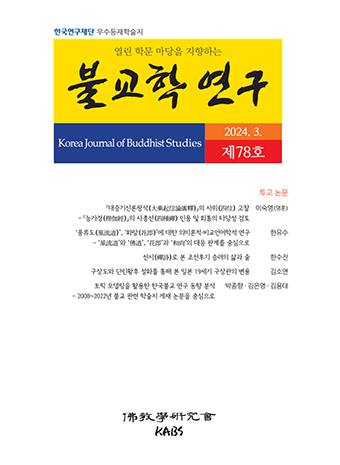Abstract
References
Sorry, not available.
Click the PDF button.
Information
Ratnakīrti’s Kṣaṇabhaṅgasiddhi‐Anvayātmikā (KSA) is an essential work to understand Indian logic and ontology.It is not difficult to find that this work has many arguments between the Naiyāyikas and the Kṣaṇabhaṅgavādins.In numerous cases, Ratnakīrti presents the thoughts of his preceding Buddhist and Hindu philosophers in their own words on the topic under discussion and discusses them in his own way.The aim of this paper is to uncover the position of Ratnakīrti in Indian philosophical systems by way of investigating the background of each argument in the KSA.This explicates the followings: 1) Succeeding the lineage of Dignāga, Dharmakīrti, Prajñākaragupta, and Jñānasrīmitra, which is the main stream of the school of Kṣaṇabhaṅgavādins, Ratnakīrti continues the Buddhist Pramāṇa tradition in the 11th century in India; 2) Refuting the criticisms by the Naiyāyikas, such as Śaṅkara, Trilocana, Bhāsarvajña, and Vācaspatimiśra, he proves the fundamental doctrines of Buddhism like the theory of momentariness (kṣaṇikatva).
Click the PDF button.
- Publisher :Korean Association of Buddhist Studies
- Publisher(Ko) :불교학연구회
- Journal Title :Korea Journal of Buddhist Studies
- Journal Title(Ko) :불교학연구
- Volume : 13
- No :0
- Pages :211~223


 Korea Journal of Buddhist Studies
Korea Journal of Buddhist Studies






